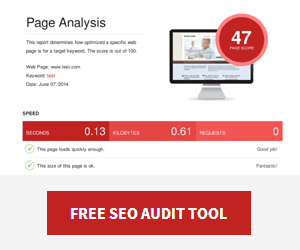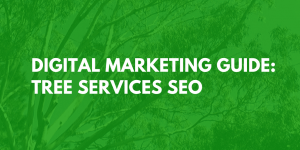The world of Search Engine Optimisation, or SEO is changing at such a pace that it can be hard to keep up with best practices. Amongst all the confusion, there are a number of “SEO Tips” floating around the internet that are straight up lies.
 If you want to separate SEO fact from SEO fiction, pay attention to our comprehensive list of SEO myths and conspiracy theories.
If you want to separate SEO fact from SEO fiction, pay attention to our comprehensive list of SEO myths and conspiracy theories.
Myth #1: Back links count for nothing
While it is true that there is more focus being placed on content than ever before, this does not spell the end of the power of back links. No matter what your personal opinion about link building strategies might be, the fact is that Google still uses link signals to determine the ranking of a website.
How they determine the value of a backlink has evolved, so it’s a good idea to be aware of some of the modern rules for link building in 2014.
Myth #2: Content is everything
Content is hugely important. If content isn’t part of your SEO strategy then you are seriously missing the mark and it is unlikely you will achieve the search traffic results you desire. BUT this does not mean that content counts for everything.
Creating content and hoping for the best is only going to get you so far, even if your keyword research and website optimisation is looking good. You need to balance, on-site and off-site SEO strategies such as blog commenting and engaging with niche websites.
Myth #3: Guest posting is a bad idea
Since Matt Cutts leapt on to the internet earlier this year and declared that guest blogging for SEO was over, many businesses and website owners have completely eliminated this part of their SEO strategy.
But that might not be the smartest idea.
Using guest posting as a means to develop authority, and build referral traffic is certainly not a harmful practice. If you do it well.
Think quality content on relevant, authoritative websites, and don’t overdo it.
Myth #4: SEO is a one time thing
Many people build a new website, implement some great SEO practices initially, but then leave their SEO strategy to fester. SEO is not a one time thing, but something that needs continual love and care in order to produce fruitful results. The solution is not to enable an SEO plugin on your website and think that the work has been done. As the saying goes, there is no such thing as a free lunch, and in order to see the web traffic you desire, a regular focus on your SEO roadmap is essential.
Myth #5: Facebook likes & Twitter followers = SEO power
Creating an engaged social media following is a great idea. You can create a dialogue with readers and consumers, and you can even direct people to your website. But don’t think that the number of followers you have on social media sites is going to boost your Google ranking.
Google’s Matt Cutts answered the question “Are pages from social sites ranked differently?” in one of the most important Google SEO Videos so far this year. He explains that accessible pages on social media are treated just like any other pages on the web. But other social signals are not a factor in their algorithms.
Myth #6: SEO is a cheap if you outsource off-shore
You can find SEO services at rock bottom prices all over the internet, there is no doubt about it. A quick glance on Fiverr.com and you will see hundreds of people offering thousands of directory submissions for $5. But of course, you get what you pay for, and if you choose to “invest” so little, the reality is that you are going to receive very little in return, if you don’t end up with a Google penalty.
Myth #7: Displaying Google ads helps your SEO
There are rumours abounding that Google structures its algorithms to promote its paid ad service Google AdSense. While there might appear to be some logic to that, it is simply not the case. Google needs to show the most relevant quality search results to keep it’s massive market share, so displaying adds will not help your website ranking. In fact displaying too many adds can harm your website ranking. Displaying online ads are a great way to monetise a blog in moderation.
Myth #8: SEO fads will help you out
Focusing your efforts on SEO fads is a risk that just simply isn’t worth it. Every now and then, an idea takes hold of the SEO community and people become convinced that creating a huge number of directory submissions, or guest posting every day, will give them that lucrative website ranking that they so desire. But actually, great SEO isn’t about buying into a fad, it takes effort and diverse SEO strategies.
Myth #9: Automated SEO software will save you
The days of mass article or directory submission are well and truly over. Website SEO Audit tools that provide information about website optimisation, and rank/traffic tracking tools are very useful, but automated submission tools should be avoided like the plague!
It might seem attractive to buy into a miracle cure but unfortunately there is no such thing as miracles. Invest your time in SEO strategy and planning and you will see far better results than any automated SEO software could possibly provide.
When you are implementing your SEO strategy and SEO practices, be mindful of these SEO myths and misconceptions. Side-step the unimportant fads and focus on what your audience, and search engines, really desire.



















No Comment
You can post first response comment.